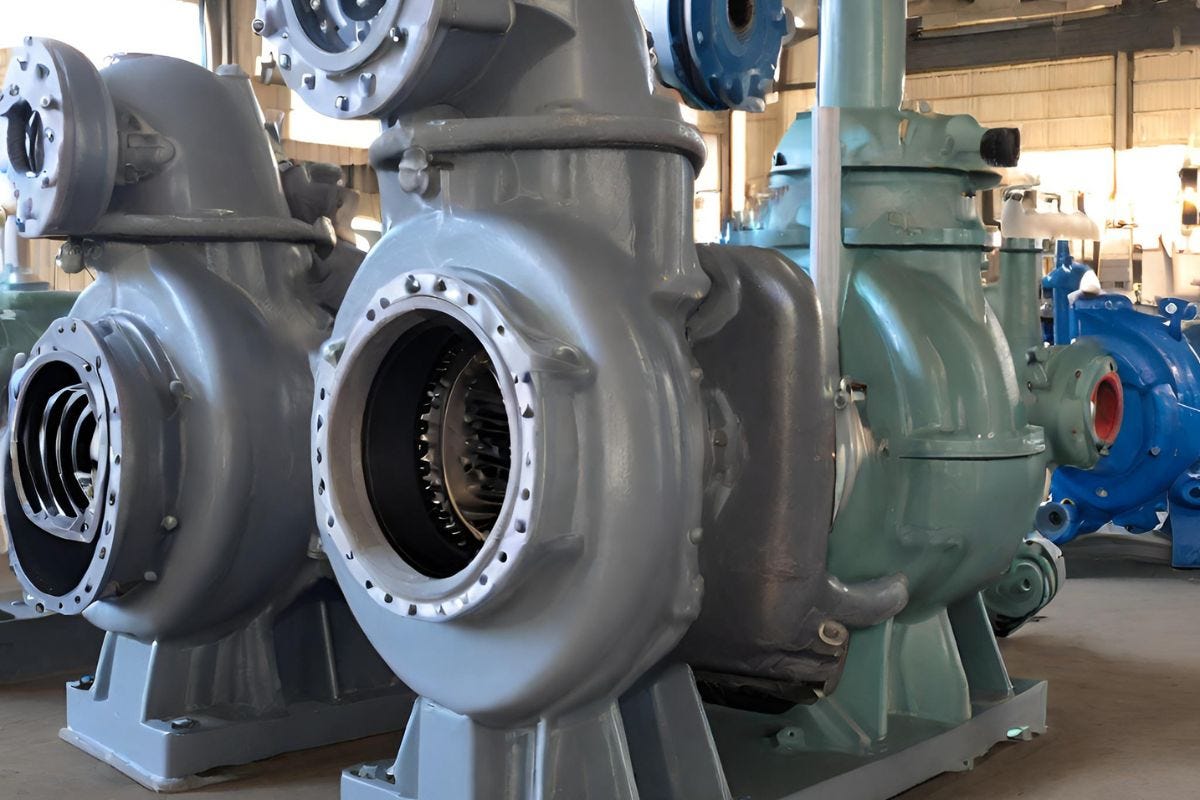Bearings in water pumps and sludge pumps serve several critical functions:
- Support and Stability: Bearings provide support for the rotating shaft of the pump, ensuring it stays in alignment and stable during operation. This helps prevent excessive vibration and wear on the pump components.
- Reduced Friction: Bearings reduce friction between moving parts, such as the shaft and housing, allowing the pump to operate more efficiently. This reduces energy consumption and prolongs the life of the pump.
- Smooth Rotation: Bearings enable smooth rotation of the shaft, which is essential for the proper functioning of the pump. Smooth rotation ensures that the pump can effectively move water or sludge without any interruptions or disturbances.
- Load Distribution: Bearings help distribute the load evenly along the shaft, preventing localized stress concentrations that could lead to premature failure of the pump.
- Sealing: In some designs, bearings may also contribute to sealing the pump housing, preventing water or sludge from leaking out and contaminants from entering the pump.
Certainly! Let’s delve deeper into the benefits of bearings in water pumps and sludge pumps:
- Support and Stability:
- Bearings provide crucial support to the rotating shaft of the pump. This support helps maintain the alignment of the shaft, preventing it from wobbling or vibrating excessively during operation.
- By keeping the shaft stable, bearings ensure that other components of the pump, such as impellers or vanes, operate smoothly and efficiently. This stability is essential for maintaining the pump’s performance and preventing premature wear and tear.
- Reduced Friction:
- Bearings are designed to minimize friction between moving parts, such as the shaft and the housing of the pump. This reduction in friction results in less energy being wasted as heat, allowing the pump to operate more efficiently.
- Lower friction also means less wear on the pump components, including the bearings themselves. This prolongs the life of the pump and reduces maintenance requirements, saving both time and money in the long run.
- Smooth Rotation:
- Bearings facilitate smooth rotation of the pump shaft. This smooth rotation is crucial for the proper functioning of the pump, as any irregularities or interruptions in rotation could lead to inefficiencies or even pump failure.
- Smooth rotation ensures that the pump can effectively move water or sludge without encountering any resistance or disruptions. It also contributes to the overall reliability and performance of the pump under various operating conditions.
- Load Distribution:
- Bearings help distribute the load evenly along the shaft of the pump. This even distribution of load prevents localized stress concentrations, which could otherwise lead to premature fatigue or failure of the pump components.
- By distributing the load effectively, bearings help maximize the lifespan of the pump and minimize the risk of unexpected breakdowns or downtime, particularly in heavy-duty applications such as sludge pumping.
- Sealing:
- In certain pump designs, bearings may also contribute to sealing the pump housing. This sealing helps prevent water or sludge from leaking out of the pump and contaminants from entering, which could potentially damage the internal components.
- Effective sealing ensures that the pump operates efficiently and reliably, even in harsh or corrosive environments. It also helps maintain the quality of the pumped fluid, preventing contamination or pollution.
In summary, bearings play a critical role in water pumps and sludge pumps by providing support and stability to the rotating shaft, reducing friction, facilitating smooth rotation, distributing load evenly, and sometimes contributing to sealing the pump housing. These benefits collectively contribute to the efficiency, reliability, and longevity of the pumps, making bearings an essential component in their design and operation.
